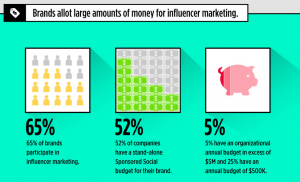IT Teams Should Have More Accountability For Marketing ROI, Study Says

Marketing and information technology are increasingly becoming integrated. Experts say that as artificial intelligence is increasingly being used and ad targeting is relying more on automation, combining the two departments or drawing a strong link from one to the other within a brand or an agency could become commonplace.
Lytics, a leading customer data platform (CDP), Thursday released the findings from a survey of 250 senior marketers and IT leaders.
The survey — Marketing and IT: The Strategic Partnership — found that 81% of marketers believe IT teams will become increasingly involved in marketing efforts during the next five years.
Jascha Kaykas-Wolff, president, Lytics, believes marketers must work with IT for safeguards on consumer privacy and to comply with increasing governmental regulations.
With that change comes an expectation from both departments on accountability for marketing return on investments (ROIs).
Some 96% of marketers and 89% of IT leaders said IT teams should have more accountability for marketing ROI. After all, IT is responsible for making recommendations on the types of technology that marketing implements.
The study’s findings suggest the degradation of the third-party cookie and the rise of first-party data collection have necessitated a union between marketing and IT.
Marketers use first-party data from a number of sources that IT supports such as website, mobile app, CRM, ecommerce platform, and point-of-sale (POS). marketing must rely on data warehouse, another tool supported by IT teams.
Some 75% of marketers surveyed said IT teams are responsible for giving them access to data for their operations and nearly 70% of marketers said they rely on IT teams for data modeling.
About 76% of IT teams surveyed said they help to choose technology and SaaS vendors for marketers. About 73% of marketers said customer data platforms top the list of important technology, followed by artificial intelligence at 66% and blockchain and smart contacts at 53%.
Fewer than 40% of marketers plan to adopt Unified ID (UID) technology. IT is even less “bullish” on UID, with just 22% of IT decision makers planning to implement it within the next five years.
However, 66% of marketing leaders and 67% of IT leaders plan to integrate AI into the company’s marketing stack, and many are still unsure about what role it will play in marketing.
Most marketers said companies will rely more heavily on AI in the future when it comes to ad targeting, at 64%.
Marketers rank the automation of marketing tasks as the main benefit of AI, followed by 40% who say it makes their ad spend more efficient. Some 35% of marketers intend to use AI to inform advertising creative.
(11)
Report Post







